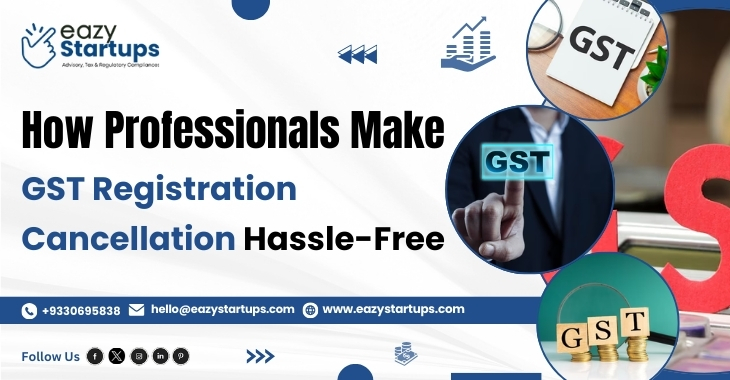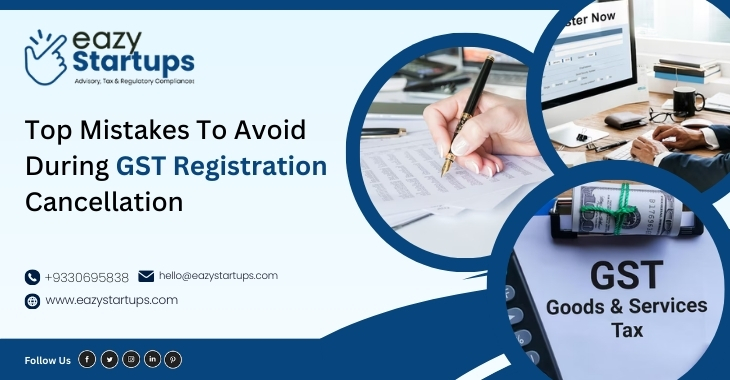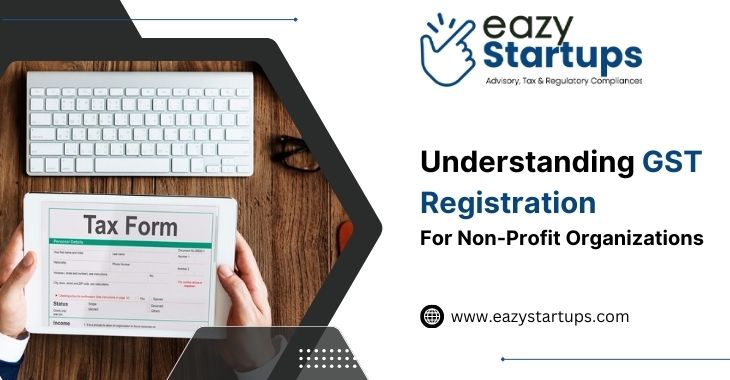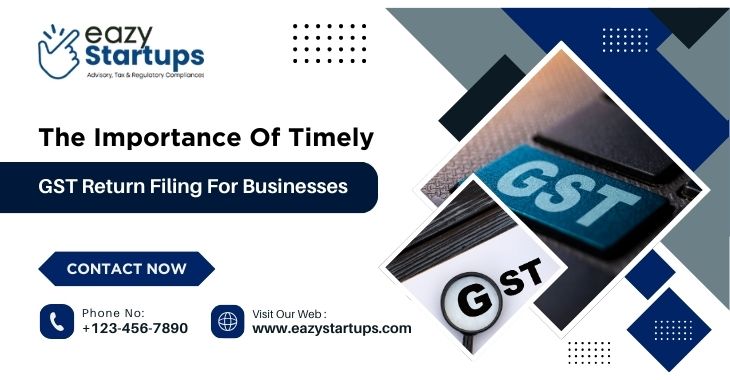Opting for GST Registration Cancellation Online in India may appear easy, but several legal and regulatory requirements are involved. Improper execution may result in penalties, delays, or even the denial of your application. For this reason, hiring an expert, like a chartered accountant or a GST consultant, is easier and less complicated.
Let’s examine how experts can make GST cancellation simple and stress-free:-
1. Checking Eligibility for GST Cancellation
2. Gathering the Required Documents
3. Filing the GST Cancellation Application
4. Clearing Any Pending Tax Liabilities
5. Handling Government Queries and Notices
6. Ensuring a Smooth and Stress-Free Process
Checking Eligibility for GST Cancellation:
Not all companies can revoke their GST registration at any moment. India’s GST law permits cancellation under the following circumstances:
- The business has been closed or discontinued.
- The annual turnover has fallen below the GST threshold (₹40 lakh for normal taxpayers, ₹20 lakh for special category states).
- The business structure has changed due to mergers, transfers, or restructuring.
- A voluntarily registered taxpayer wants to cancel after one year.
A professional reviews your case and ensures that you meet the eligibility criteria. It avoids unnecessary delays and increases the chances of approval.
Gathering the Required Documents:
To cancel GST registration, you need to submit certain documents, including:-
- PAN and Aadhaar of the business owner.
- GST registration certificate.
- Proof of business closure (if applicable).
- Final GST return details (GSTR-10).
- Details of any outstanding tax dues.
A professional ensures all documents are correctly arranged and uploaded on the GST portal. Missing or incorrect documents can lead to rejection, which they help avoid.
Filing the GST Cancellation Application:
Businesses must use the GST site to file Form GST REG-16 online to cancel GST. The technical aspects of this process are bewildering to many business owners.
A professional completes the form accurately, ensuring all information is included, including stock details and tax responsibilities. It improves the likelihood of prompt GST department approval.
Clearing Any Pending Tax Liabilities:
The GST department ensures that all outstanding taxes are paid before authorizing cancellation. If you have unpaid invoices, your application may be denied.
Experts help determine unpaid tax obligations and guarantee prompt payment. Additionally, they help file the final GST return (GSTR-10), which is required upon cancellation.
They assist in determining if any Input Tax Credits (ITCs) your company has claimed need to be reversed or if more tax needs to be paid. It avoids future legal problems.
Handling Government Queries and Notices:
After submitting the GST Registration Cancellation application, the GST officer may request more information or explanations. Your application can be denied or delayed if you don’t answer correctly.
A specialist answers all of your questions and guarantees that the correct information is given. They also carefully monitor any follow-ups to prevent you from missing crucial deadlines.
Ensuring a Smooth and Stress-Free Process:
If you’re unfamiliar with tax rules, handling GST cancellation alone can be confusing and time-consuming. Errors in the paperwork or application may cause needless anxiety and delays.
Everything is handled by a professional, including eligibility verification and last-minute legalities. This allows you to concentrate on other crucial issues, saving you time and effort.
Conclusion
In India, several procedures are involved in GST Registration Cancellation, such as eligibility verification, tax clearance, and legal compliance. A minor error could result in delays or legal issues. Hiring a GST consultant, tax counsellor, or chartered accountant is streamlined, error-free, and expedient.
If you want to cancel your GST registration stress-free, the best action is to get professional assistance. It gives you peace of mind, saves time, and guarantees compliance. So, reach out to our team of professionals at Eazy Startups if you want hassle-free GST Registration Cancellation Online in India. We handle everything from documentation to final approval, ensuring a smooth and stress-free process. Contact us today for expert assistance with GST cancellation!











Recent Comments